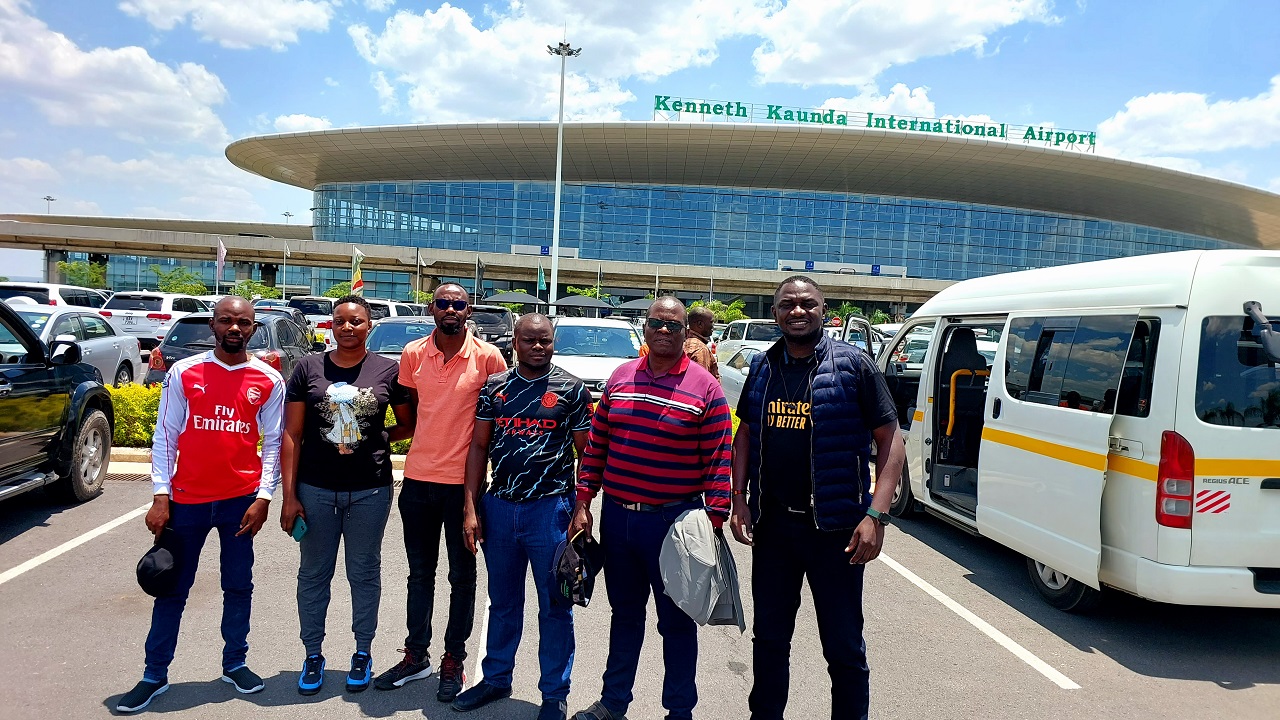To bolster the honey value chain, Egerton University, among other African institutions, stands at the forefront of a transformative initiative. Through its participation in a student challenge hosted at Mulungushi University in Zambia, the university strives to enhance the profitability and sustainability of beekeeping entrepreneurship. The challenge involves students in real-world challenges faced by the small-scale farmers, thereby promoting innovation and problem-solving skills which are important in solving the challenges of bee farmers. The Egerton University team is led by Dr Bernard Karanja from the Crops Horticulture and Soil department at Egerton University who also comes in as a lead mentor.
The challenge has a total of five universities; Mulungushi University from Zambia, the University of Zambia (UNZA), The University of Nairobi, South-Eastern Kenya University (SEKU) and Egerton University from Kenya. The initiative is organized under the Faculty of Agriculture, where Prof. Patience Mshenga is the Local coordinator of the PBL BioAfrica project. PBL-Bio Africa is a collaborative project for strengthening the capacity in bio economy HEIs (Higher Education Institutions) in Kenya and Zambia. It integrates problem-based learning (PBL) methods into bio-entrepreneurship education to equip graduates with practical and entrepreneurial skills needed in working life. It also strengthen open distance learning to reach a large number of students. Climate-smart agriculture will be introduced as the guiding principle in business development. In addition, recognizing the role and potential of women in agriculture will improve both equality and economic development. Through PBL-BioAfrica, students can participate in real-life industry projects. Teachers are also provided training courses on PBL, participatory online teaching and climate-smart agriculture.
The core objective of the bee-keeping challenge lies in promoting experiential learning. The project aligns with the governments Competence Based Curriculum (CBC), embracing Problem-Based Learning methodologies emphasizing collaboration, critical and design thinking in the agricultural domain.
Despite Zambia's conducive ecological conditions for beekeeping and abundant colonies, the honey value chain's profitability remains a concern. This challenge further redresses this issue by advocating for increased involvement of women and youth in beekeeping, tackling economic challenges at the production level, and exploring avenues for enhancing the value and marketing of honey. By coming up with affordable and demand driven intervention, the students are working towards improving profitability that will boost income, food security and livelihoods.
Collaborations with significant stakeholders and partners in Zambia are integral to the success of the challenge. Notably, the Common Market for Conservation (COMACO) is a pivotal partner in bee farming, facilitating the transformation of farmers' produce into high-value food products distributed nationwide. Mulungushi University is the projects client and seeks to provide alternative livelihood skills and train small-scale farmers in the practices of climate smart and sustainable agriculture that would improve livelihood.
Moreover, this initiative resonates with the Zambian government's strategic goals of fortifying rural enterprises, fostering a conducive business environment, and promoting sustainable management of natural resources. The student-led challenge is a conduit for insights into honey value chain development, aligning seamlessly with the government's support for small and medium-sized enterprises (SMEs).
Egerton University at the Kenneth Kaunda International Airport










